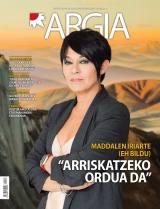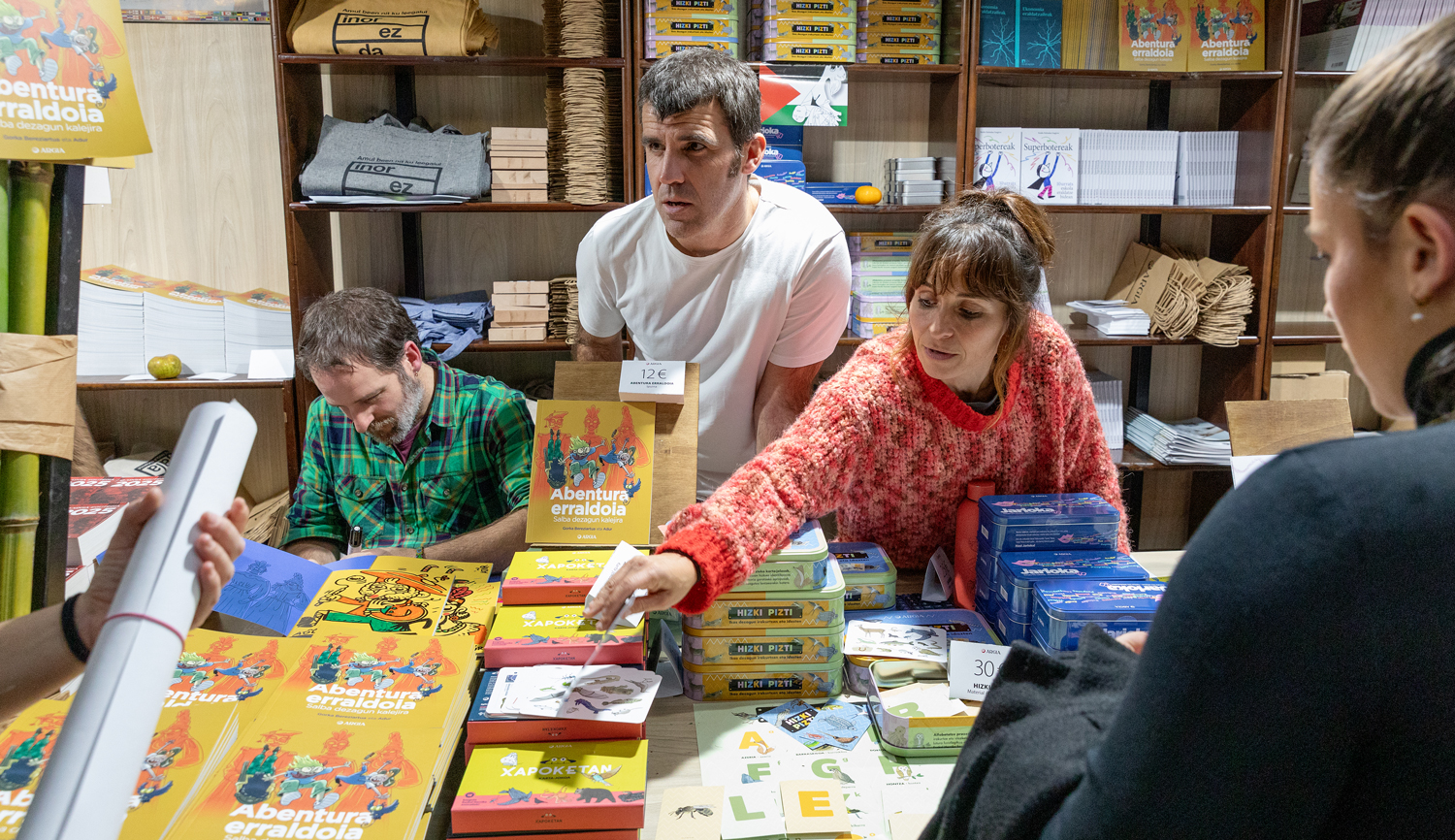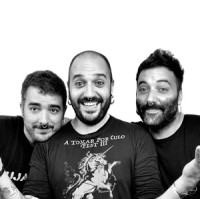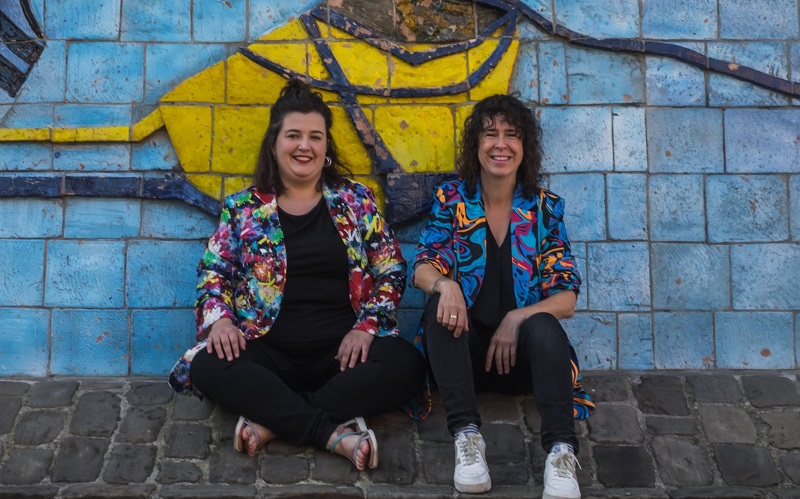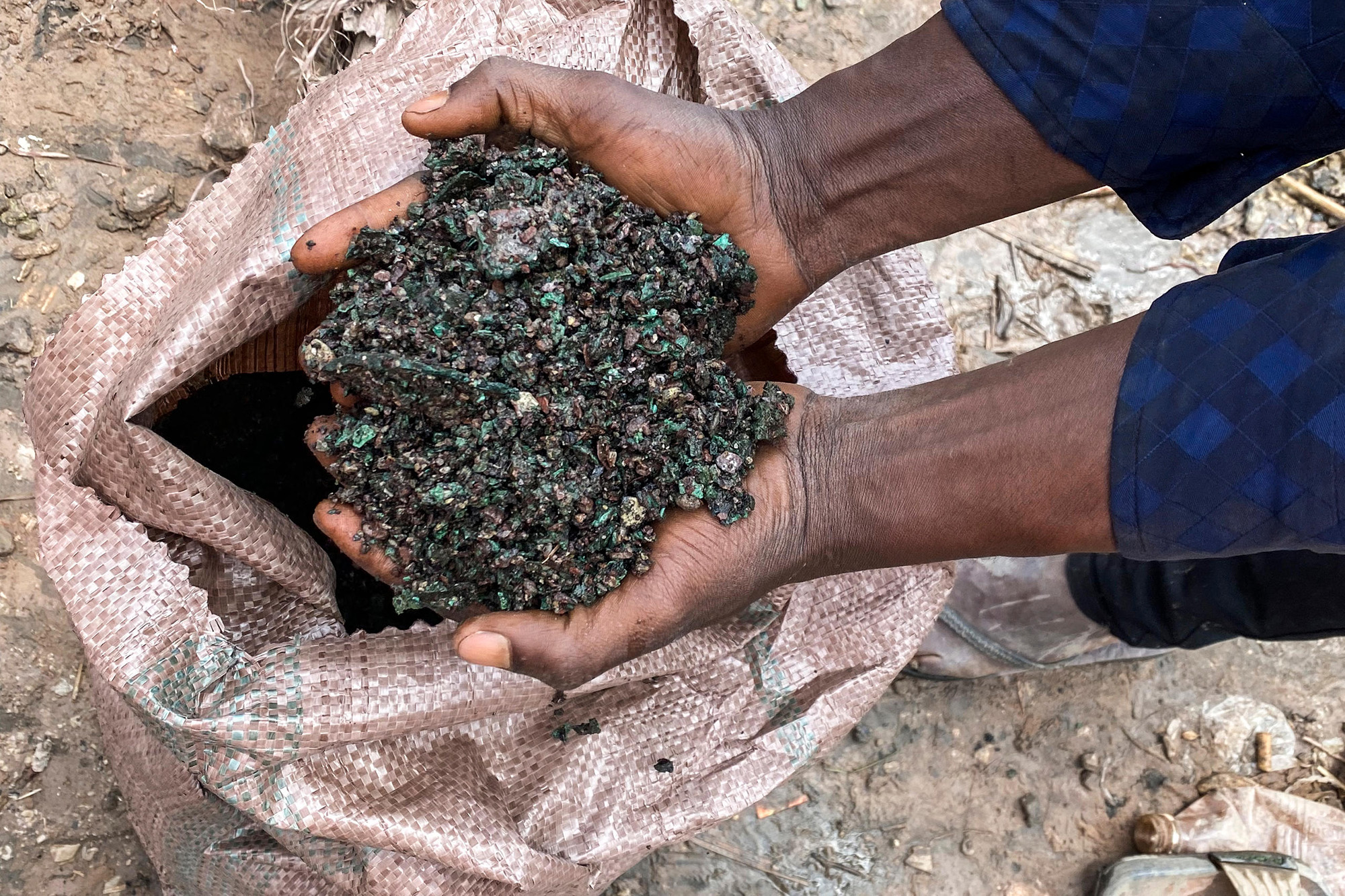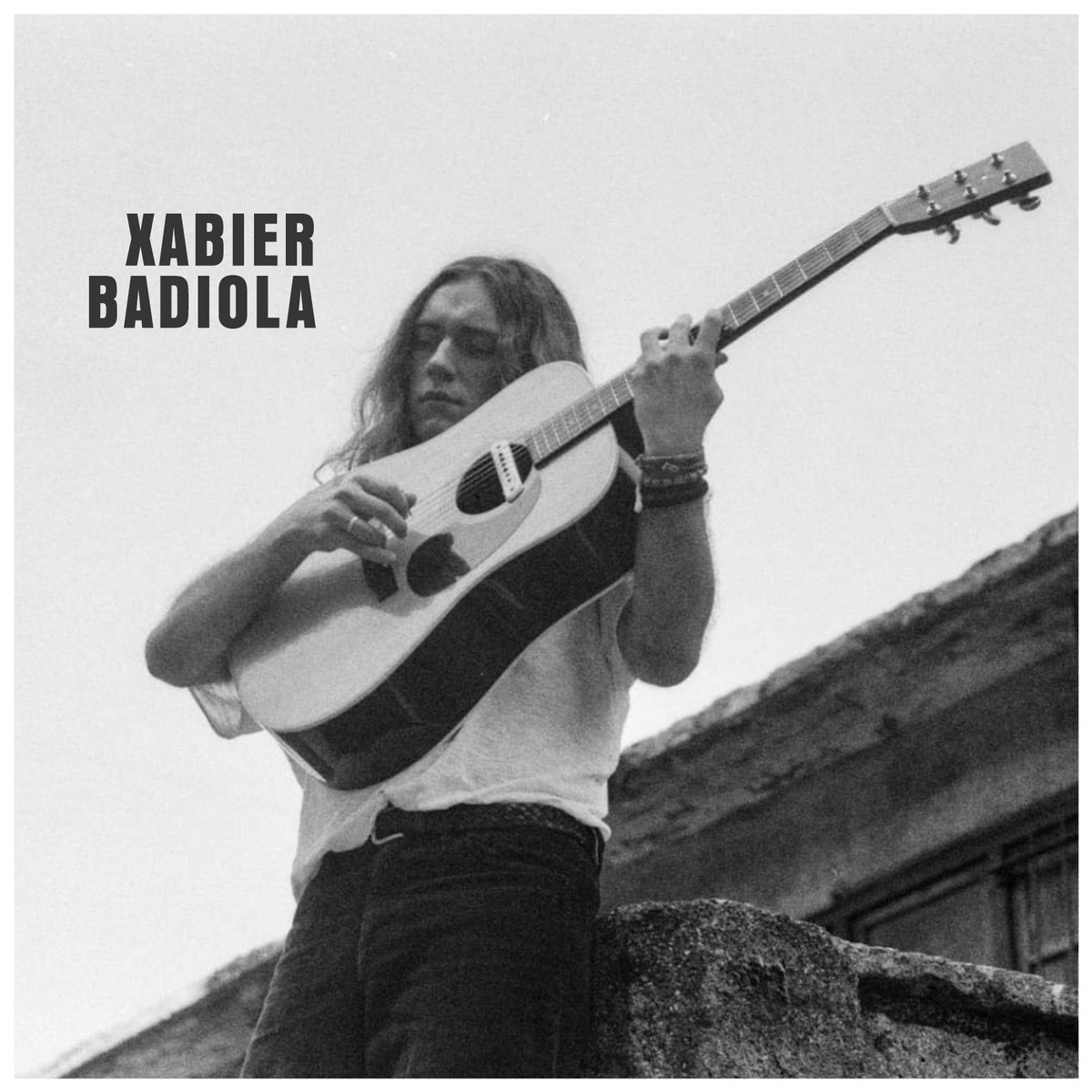"Politicians have no roadmap for Euskera"
- He published his new work in November, the days when Franco was killed, and many other things from Basques’ Harbour (Susa, 2016), although he did not make a presentation. It has returned to its particular port, with nine compelling narratives, the strength of the hurricane, and has led in a whirlwind the symbols of writing, a lexicon field and an easy syntax. People and real facts have gone to pique and have done literature, as usual.
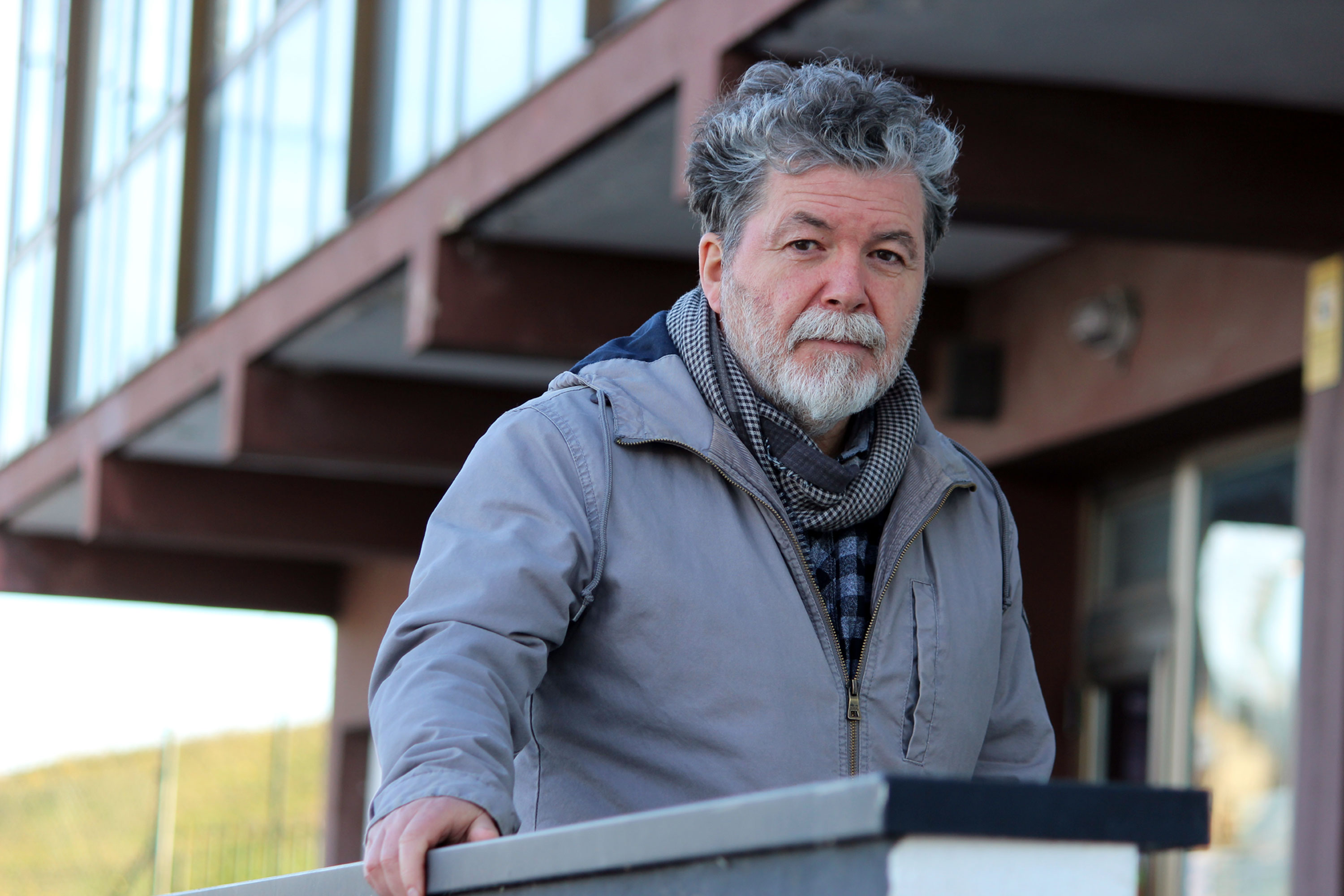
Franco was killed without presentation of the book and, on the contrary, has made a round of interviews since the publication of his new work. What you wanted to spend quietly, we've had in the media of each other, a press full of pages.
It has drawn my attention, on the one hand, and, on the other, it has drawn my attention. That is, what it means to expose in the foreground of the newspaper; two pages – and three! – that I have, or my books. All the interviews I've made have been about the book, not about the writer -- except the two or three FAQs -- but the space they've given me has given me something to think about. I do not agree. I am very grateful, it will probably influence the sale, but, on the other hand, I have the feeling that I am a little challenging. It is not standard treatment. It seems to me that I am “betraying” my collective, that of the writers. We know that the writer is a personal thing, it is an individual thing, but the treatment of the author of the demass can harm us. Being under the focus erodes us. The truth is, they've given me a treatment that I didn't expect.
As never in your literary works, a quote is the prelude of ten simple rows. In it, he says that the writings are stories, “what is called Chiapas history,” which are based on real people and facts, which you add literature, “so that what they lived takes a symbolic value.”
The quotation, in this case, is right: all stories are based on a concrete fact, of reality. It is sufficiently apprehensible for those of my generation to hide behind the event in question. Behind Irauntza’s story, for example, is the murder of García Ripalda, in Donostia, in Gros. As for Joseba Elosegi, I mention it by name and surname. I mean, what I've written is not a total fiction, it owes a lot to our history and our reality. To that I have added literature, from them, and I have fichated a world around them, in my own way. Franco's Katxalote, for example, I've made it a gigantic victim of all the firing squad, a huge body full of harpons that can accommodate all the firing squad. So the quote: they're facts, I haven't made a simple reversal, I've put them into a fiction.
Will the reader understand that?
By age ...
García Ripalda, Joseba Elosegi, the Katxalote de Franco in Bermeo… names and facts of the time.
I am very old, from the last century! And my parents, almost the 19th century! That makes a lot!
“I try to change the structures, break, advance, build parallels”
“This book aims to be a tribute to the people who want to make from the shadow to the light,” which we have read at the end of the quote.
The photograph we've used on the cover of the book is called Itzala. It is the name I have given him, even if he does not have a name in himself, and the author is rather anonymous. On the front page there is the carabinero, that is, the civil guard operating at the maritime customs in the port, with a rifle on the back, at ten and twenty in the morning, projecting a shadow against the back wall. This shadow characterizes me from an era, it is the shadow of Franco, it is that of dictatorship, it is that of repression. Everywhere was the dictatorship, also in the work of the port, and hence the book is written in tribute to those who want to move from the shadow to the light. In a logic, I should have written in the past, “those who wanted from the shadow to the light”, since all the narratives are in time and in the environment of the past, but I have brought it to today, because without that shadow of then we still have many other shadows. Of course, it's not like that. Before, it was possible to fight unequivocally against the dictatorship, there was a main enemy! Now, of course, the low-class Basques have many enemies.
“Today I have brought the shadow of the dictatorship, because without it we have many other shadows”
How do you do all that environment and that time to fictional from the most intimate, from the most intimate of those people?
That's literature, right? I'm wrong when I talk about the lips of some characters. I've invented some characters and tried to bring them to life. I may have been too ideological, but I knew the ideological era, and I may not have removed all that dirt from the top. That's what I wanted to do at the signing: write what was around the event.
Fiction, where do you drink to write as a writer? It is not common among us the fire that you handle, the absence of symbols of writing, those colors of the lexicon…
I don't know.
“Politicians do not have a roadmap, there is no defined policy for the Basque Country”
Writers in Euskera behave in a wearer way…
I think it’s a widespread phenomenon to write softly… Experimentalisms have fallen far behind. They're things from the 20th century. I don't think I do experimentalism, but I try to change the structures, break them, move forward, build parallelisms. That's very common in the literature I've read. In the Basque literature there are not many humble characters, nor the industrial world, where the majority of the population lived from the industry, in Gipuzkoa and Bizkaia. That world has not appeared much, except for a particular conflict. But, in normality, it doesn't appear. It is probably because the life of the worker is not, unfortunately, very novel, because he does not have many surprises, unless it is a serious accident. This industrial world does not appear, for example, port work...
There are many unique characters in the book and, one of them, the photographer: Rafael Artista Fotograph.
You have more than one photographer added. The port reality has a lot to do with the creation of this character. The industrial port is a very photogenic place: dirt, drums, wagons… The port has a strong industrial aesthetic, with a great contrast. It was not surprising, therefore, that the port was also the place of the photographers. The ports of Pasaia, for example, were always those of the correspondent press, the Works Commission did not have photographers, but it always had a commission for them. Photographers made large collections. Pasaia Antxo had three professional photographers for four thousand inhabitants at one point. This means something. Still today, the family of one of these photographers has donated two thousand glass negatives to a cultural group in Pasaia (Gipuzkoa). In it you see all the people, from before the war to the 1980s. As for photography, I lived in the harbor and, as a young man, my father had given me a camera that had taken me out of smuggling from somewhere, and I picked up some reels and walked around the harbor making abstract photographs and experiments. So what belongs to the photographer has already been said.
“Language is not a sector, but a structure that covers everything. The Basques are not a group, but a sector”
Galego's atmosphere is also completely present in his narratives. Or I mock in the story above all…
Pasaia has four large districts, one of which is Trintxerpe, totally Galician at one time. The Galician still listens in its streets, although now there is less listening, since the descendants of the Galicians of that time are more Euskaldunes than the Galicians. When we said “good morning”, they understood “eu non”, that is, “I no” or “I no”, and “eu no” was the usual answer… among the Basques! This demonstrates the strength of Galego’s condition not only in Trintxerpe, but also throughout the port area. The poor community was the most Welsh, they came to do the hardest jobs, the ones going to Newfoundland to do cod ... People who have suffered a lot, Galicians. On the other hand, during the Republic, the Galicians left the port of Donostia in a demonstration after several months of strike. The civil guards waiting for them in Ategorrieta, seven dead, forty wounded. The following day, the headlines of The Day: “A crowd for disturbing purposes was approaching the capital…”. Justifying the killing! The world of the galleries we met was very attractive, had a boxing club and, on the other hand, I played on the Trintxerpe football team. I owe a lot to Trintxerpe. Normal presence in the book.
We know who you write so upside down to: remember a cult, humorous and passionate reader of literature.
You have to take the heat out of everything. A little cult, a little humorous, a little literate.
Is that our level?
I am myself. A little bit.
On the cover of Berria we read that you want to bring to literature the end of the twentieth century…
I didn't intend to write this book, I wanted to do stories from 1975 onwards, no, but I started writing and I realized that there was always Franco's image and I went ahead. To say that I want to bring to literature the end of the twentieth century! Many times I don't even know what I say!
You have not held conferences in Plateruena de Durango and in the headquarters of Euskaltzaindia in Bilbao, organized by the Euskaltegi Bilbo Zaharra. She has also had Basque in both issues. In the second, “Some Basque methods to end the Basque Country” is the title of your speech.
I think we are in a great dispersion and without strength. I do not feel represented as Basque anywhere. That is our destiny. All politicians belong first to their party and then are Basques. If our language were in good condition it would not be a problem, but the problem is that politicians show at least twice the breakdown of our language. Nested. They are not capable of sewing a speech in Euskera. There is no political language emerging from Euskera, everything is translation, everything is adaptation of terms in Spanish. That, however, is important, they do not have a roadmap, there is no concrete policy for the Basque people. In any case, the Basque country has a sectoral problem, as it used to have women or workers in sectoral problems. But language is not a sector, but a structure that covers everything. That is our main problem, that the Basques are not a group, but a sector, and that, therefore, we cannot overcome this false bilingualism.
At the time you presented the tests for the autopsy (Susa, 2010) you were also at it…
Tests have increased. I have been tired of collecting the fragments, the issue is the kind of surrealism. What happened in Vitoria-Gasteiz, put the leeks on sale with the “porros” card and like the one that received the municipal police ban. It would appear in a humor movie, and people would laugh and think it's a form of ridiculation. But it has happened in reality! So far we have arrived. In the meantime, nothing is happening. The language policies are fine, they are very appropriate, we move forward…
Desagertzeko arriskuan dagoen espezieren bateko idazlea da Koldo Izagirre Urreaga (Pasaia, 1953), alderantzira idazten dutenen kide. “Euskararen sintaxia ere halakoxea da, eta hura zuzendu nahian nabil”, dio. Franco hil zuten egunak, eta Basques’ Harbour-eko beste kontu asko, liburu berria dakarrela ere, non dago basques’ harbour eta, oroz gain, Egarri egunak Portualdean dakartza. Sahara, Joseba Elosegi, Francok fusilatuak, manifestazioan Donostiako Grosen 1975eko urriaren 31n balaz hildako Jesus Mari Garcia Ripalda, propaganda klandestinoa zabaltzen duen neska gaztea, Francoren heriotzaren osteko igandean jokatzeari uko egiten dion futbolaria –dolua gorde beharra izan ez dezan–, “eta beste kontu asko”, azpitituluan idazten asmatu duenez.
Franco hil zuten egunak honetan, aro jakin bateko giro-garaiak literaturizatu ditu Izagirrek, idazkera pekoz gora jarririk, ikurren gainetik jauzi eginik, pertsonaia bata eta bestea idazlearen lumari gailentzen zaizkiolarik, etorri handiko uholean, lexikoa aberats, sintaxi landu, erritmoa indartsu.
Finean, irakurle literatura zale makurrak behin eta berriz eta askotan irakurri beharko dituen orrialdeak, Izagirrek ez bezala behin eta berriz eta aunitzetan irakurriko ditugunak, egileak nekez itzuliko baita orri engoitik zaharrotara. “Liburu bat publikatutakoan izan nezakeen txarrena da hura berriz irakurtzea. Ahaztu egiten dut berehala. Oraintxe, ez nizkizuke emango Franco hil zuten egunak liburuko narrazioen tituluak. Ez naiz gauza. Ahaztuta daukat liburua jada”.
Irakurleak ez bezala.
He forgives the oak trees, oak trees, oaks, herons, strawberries, dressings, chestnuts, birch, gorostidias, chamomiles, pine trees and all the societies of the trees, but today the hayedo has a date on the occasion of the celebrations of the winter border.
It is easier for me... [+]
Euskaraldia comes back. Apparently, it will be in the spring of next year. They have already presented it and the truth is that it has surprised me; not Euskaraldia himself, but his motto: We'll do it by moving around.
The first time I have read or heard it, the title of the... [+]
When the heteropatriarchal capitalist colonial system is questioned and fought, it attacks mercilessly. Using all the tools at your disposal to strengthen, strengthen and consolidate institutional power, media, justice, language, culture, violence...
In Switzerland, where every... [+]
The end of the Syrian Arab Republic has caused great surprise at the way in which it has taken place: fast and almost without resistance. However, it is not so strange when we consider that the country was destroyed, impoverished and trodden. Most Syrians have long been... [+]
I have always found the way in Spanish to the carriages that can be found here and there: humiliating. Isn't it a pretty light, white name or doesn't it have any connotation? After all, everything that was going on there had to be humiliated. It is known that for the god of... [+]
Many at Christmas feel more lazy than illusion when we think about meals and family gatherings. But we anticipate that it is not food that makes us feel collectively uncomfortable, but the normativity that defines the traditional family. Moreover, we would dare to say that the... [+]
By:
Mirari Martiarena and Idoia Torrealdai.
When: 6 December.
Where: In the San Agustín cultural center of Durango.
------------------------------------------------------
The fourth wall breaks and interferes directly, standing and fearless. ZtandaP is a way of counting... [+]
Xabier Badiola
Gaztelupeko Hotsak, 2023
-------------------------------------------------
Let's see. “Current music” is called music to anything that has a box of electronic rhythms, and, of course, you can’t. In these lines we have tried to show that the labels and... [+]









